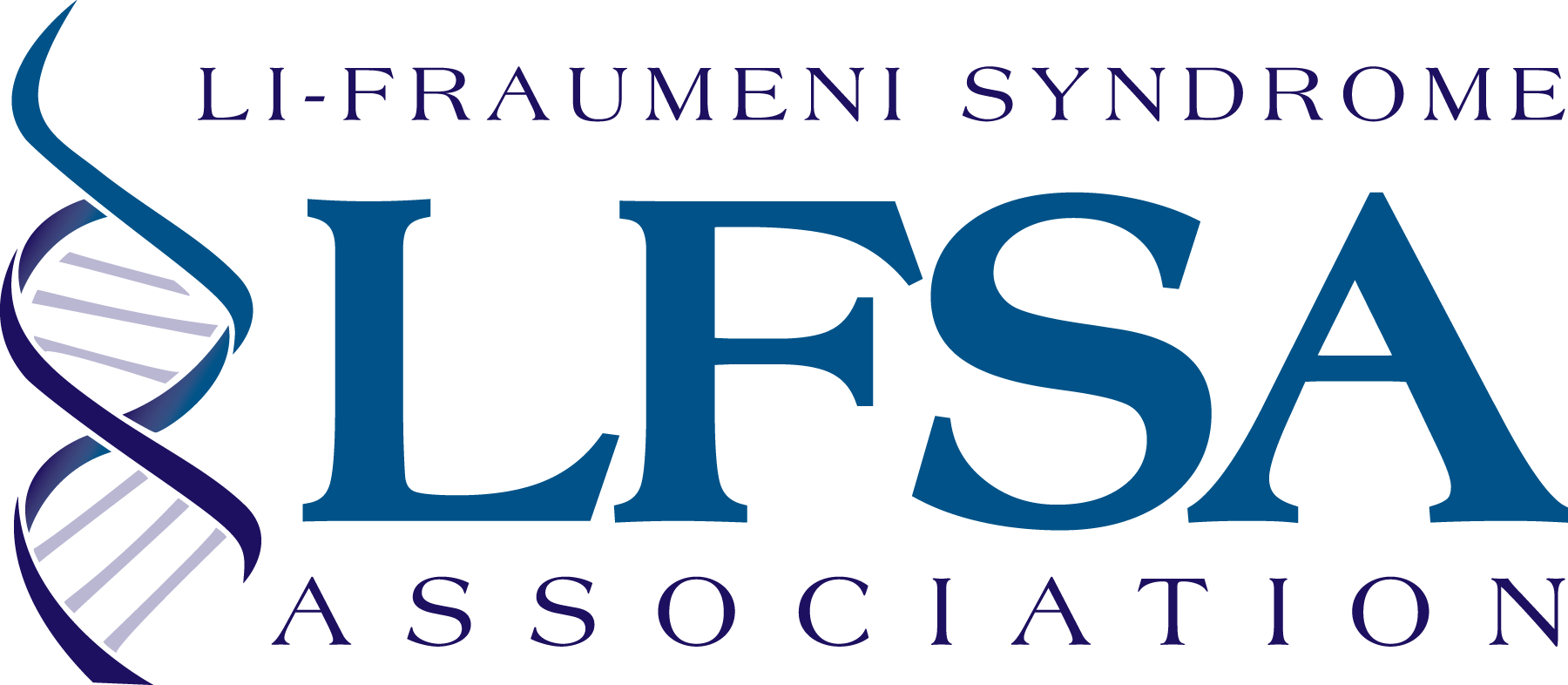1969
Two NIH scientists, Drs. Frederick Li and Joseph Fraumeni, report a rare familial syndrome of multiple cancers in children and young adults, including sarcomas, breast cancer, and other tumors. This discovery of childhood tumors and cancer-prone families occurs at a time when little attention was given to the role of genetic susceptibility in cancer.
1979
The TP53 tumor suppressor gene is co-discovered by Drs. David Lane and Arnold Levine, and over time, is recognized to be the cause of a wide range of cancers. TP53 is currently one of the most studied genes in the world.
1982
Researchers in the United Kingdom are the first to coin the name “Li-Fraumeni syndrome.”
1988
Drs. Judy Garber, Li, Fraumeni and colleagues document the elevated risk of subsequent cancers in 24 families with LFS, note the especially high risk for breast cancer in young women, and propose the first “classical” definition of LFS based on clinical and familial criteria. Drs. Louise Strong in Houston, Jillian Birch in Manchester, and Ros Eeles in London, provide important insights into the LFS component tumors and mode of inheritance.
1990
A multi-institutional team led by Drs. David Malkin and Stephen Friend in Boston discovers that inherited (“germline”) mutations of TP53 are the primary cause of LFS. This opens the door for predictive and diagnostic genetic testing
1992
Recommendations that address clinical, psychosocial, ethical, economic and legal ramifications of genetic testing in LFS with applications to other genetic disorders, particularly in children, are published.
1992
A team led by Drs. Alan Balmain and Larry Donehower in Houston creates the first p53-deficient mouse. It has a very high incidence of cancer that is subsequently shown to occur earlier when the mice are exposed to radiation.
1998
A team led by Drs. Li and Fraumeni documents the elevated risk of subsequent cancers in LFS patients, even outside the radiation field of a primary malignancy.
2001
A collaboration of investigators in Brazil and Memphis describe a unique germline TP53 mutation in children with adrenal cortical cancer in southeastern Brazil.
2004
Teams led by Drs. Gigi Lozano in Houston and Tyler Jacks in Boston describe the first TP53 mutant mouse models of LFS, which are subsequently used to better understand how cancers develop and progress.
2007
Dr. Maria Isabel Achatz provides evidence that the ‘Brazilian’ TP53 mutation is a “founder mutation” derived from a common ancestor migrating long ago from Portugal. The spectrum of cancers in these families resembles those with “classic” LFS.
2010
NIH convenes a meeting of LFS researchers and, for the first time, LFS patients and family members, to generate plans for an international and multidisciplinary alliance of scientists, clinicians, psychologists and genetic counselors – the Li-Fraumeni Exploratory (LiFE) Consortium. At this meeting, families form the LFS Association (LFSA) to partner with LiFE and best meet the needs of the LFS patient community.
2011
Dr. Malkin and colleagues at the Hospital for Sick Children in Toronto develop screening recommendations for early cancer detection in carriers of the defective TP53. The “Toronto protocol” provides a comprehensive program of clinical, biochemical and imaging, including whole-body MRIs.
2015
Researchers in France, led by Drs. Thierry Frebourg and Laurence Brugieres, update the “Chompret criteria” further refining the clinical and familial characteristics widely used to help identify potential carriers and facilitate the diagnosis of LFS.
2016
The LFSA Medical Advisory Board is formed, followed shortly thereafter with the formation of the LFSA Genetic Counseling Advisory Group.
2017
The LFS Association pilots its first Youth Workshop with teenage participants from around the world, and launches international chapters in Germany, Saudi Arabia, and the Netherlands, in addition to Canada, Australia/New Zealand, and Brazil.
2017
New screening recommendations are published based on the modification of the “Toronto protocol.” Comprehensive consideration is given to the impact on patients to maximize participation in early tumor detection screening.
2019
The American Association of Cancer Research (AACR) celebrates the golden and ruby anniversaries of Li-Fraumeni syndrome and the discovery of p53: paradigm models of cancer predisposition and tumor suppression at their annual meeting in Atlanta.
2020
The LFSA Scientific Advisory Board is formed to provide a global approach and explore avenues in LFS research not yet tapped.
2022
The LFS Association’s global reach has extended with additional international chapters representing France, Latin America, Japan, Singapore, India, Italy, and Africa.

